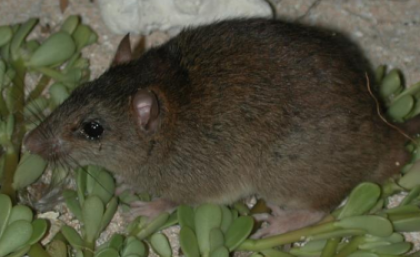The First Mammal to Ever Go Extinct from Climate Change
It was a rodent.

(Photo: The University of Queensland)
Off the northern coast of Australia lies Bramble Cay, a lonely, tiny island that just pokes out of the ocean.
It is only around nine acres, and, for years, was the site of shipwrecks, before authorities built a lighthouse in 1924.
It was also the home of Bramble Cay melomys, a rodent isn’t found anywhere else on earth.
But in recent years, rising ocean waters have at times inundated the cay, which sits just a few yards above sea level, likely wiping out the melomys population.
Scientists from the University of Queensland visited in 2014 to be sure, and they could find no trace of the mammals, they said this month.
They’re now calling it the first extinction of a mammal due to climate change. Melomys, they said, could’ve died from any number of reasons, whether by drowning or just the simple destruction of their habitat.
Some local fishermen last saw some melomys in 2009, the scientists said, but when they exhaustively searched in 2014, they found nothing.
“A thorough survey effort involving 900 small animal trap-nights, 60 camera trap-nights and two hours of active daytime searches produced no records of the species, confirming that the only known population of this rodent is now extinct,” Luke Leung, one of the scientists, said.
Leung did leave one hopeful possibility: melomys are thought to originate in the Fly River delta, in Papua New Guinea, and its possible, he said, that they or a very similar rodent lives on there.















Follow us on Twitter to get the latest on the world's hidden wonders.
Like us on Facebook to get the latest on the world's hidden wonders.
Follow us on Twitter Like us on Facebook